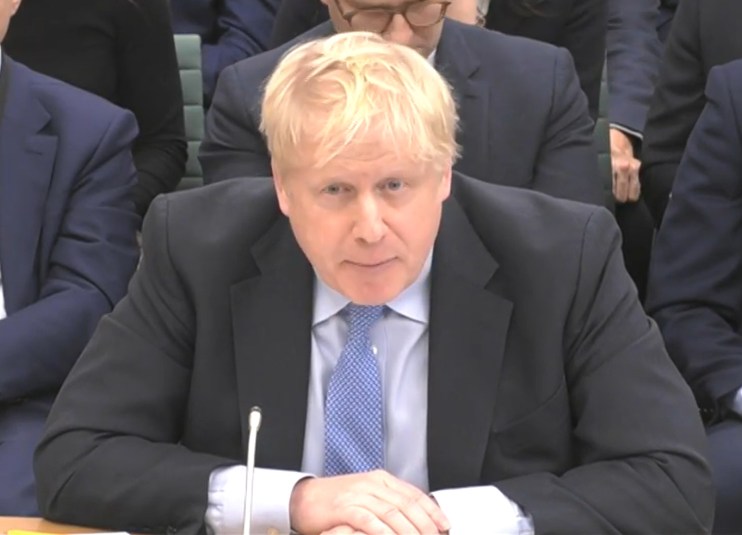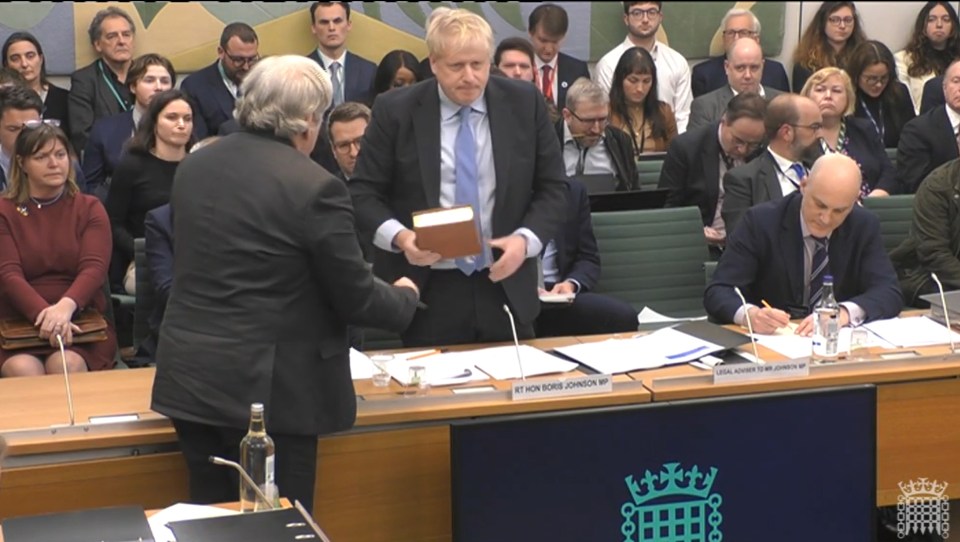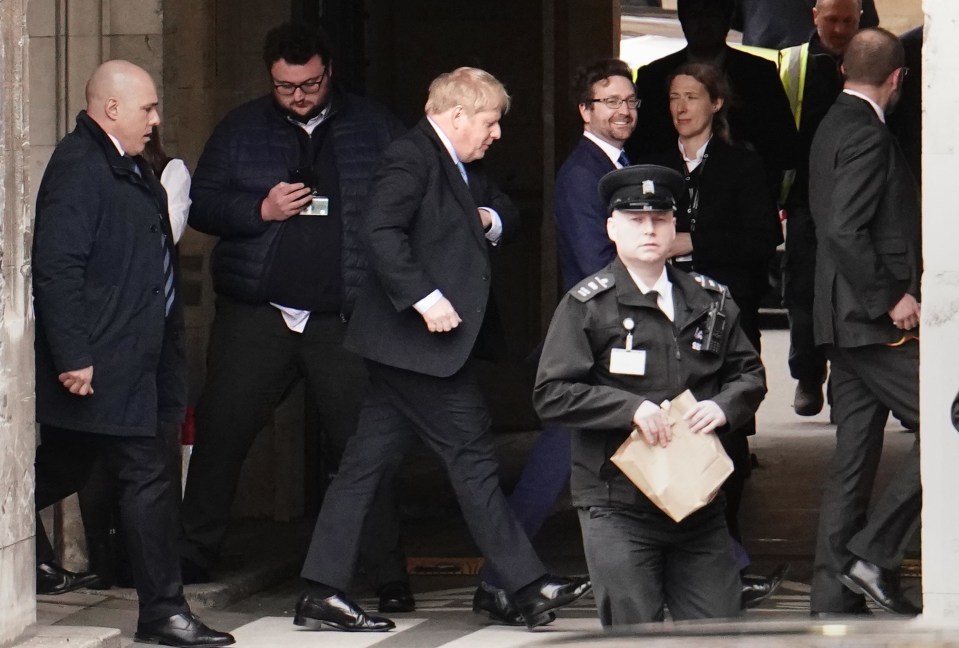Defiant Boris Johnson insists ‘I did not lie’ and claimed boozy leaving do was ‘essential’

A defiant Boris Johnson insisted he “did not lie to the House” and claimed a boozy leaving do was “essential for work” in a fiery evidence session set to determine his political future.
Johnson underwent a fierce grilling by the cross-party privileges committee, as MPs aimed to decide if he misled – intentionally or recklessly – the Commons over the partygate saga.
The former prime minister said he had been “misremembering” when claiming during partygate that rules had been followed at all times and slammed a Conservative MP for a “completely ridiculous” assertion that his reliance on aides was a “deflection mechanism”.
He called the inquiry “manifestly unfair” and hit back at suggestions he may have “knowingly, recklessly or intentionally” misled the House, even displaying flashes of anger at times.
After taking an oath on the King James Bible, he swore to MPs: “I am here to say to you, hand on heart, that I did not lie to the House.
“When those statements were made, they were made in good faith and on the basis of what I honestly knew and believed at the time.”

He said if it was so “obvious” that rule-breaking was going on in No10, as the committee argues, then it would also have been “obvious” to others, including Rishi Sunak.
Chairman Harriet Harman dismissed claims of bias and said MPs left “party interests at the door of the committee room and conduct our work in the interests of the House”.
Johnson attempted to rebut the committee’s arguments, including that gatherings – including his birthday party which the Met Police fined him for – were “essential for work purposes”.
Raising a toast surrounded by alcohol at a leaving do for communications chief Lee Cain was, he said, “not only reasonably necessary but it was essential for work purposes”.
He said his former adviser Dominic Cummings – himself disgraced over Covid rule-breaking involving a trip to Barnard Castle and a drive to test his eyesight – had “every motive to lie”.
Asked about a leaving do and a photograph of champagne bottles, Johnson said it “seemed to me to be wholly in accordance with rules and guidance and a proper use of my time”. He denied seeing “any sign of drunkenness or excess”.

Johnson told the committee: “When I said the guidance had been followed completely (at) No 10, which is actually what I said, I was misremembering the line that had already been put out to the media about this event, which was ‘Covid rules were followed at all times’.”
He has insisted that he made his denials to Parliament “in good faith” on the advice of his officials, which he now concedes turned out to be wrong.
Tory MP Alberto Costa said: “Some might see your reliances on the reported assurances you received as, and forgive me, as a deflection mechanism to prevent having to answer questions about your knowledge of these gatherings.”
But Johnson replied: “No, that would be a completely ridiculous assessment.”
Labour grandee Harman made a comparison to seeing a speedometer at 100mph but then denying speeding because someone assured him he was within the limit.
“Do you actually think we would be entitled to be a bit dismayed about the flimsy nature of this assurance?” she asked, adding that Johnson’s claims “did not amount to much at all”.
The former PM acknowledged he could have given a fuller explanation to MPs about his view on following coronavirus guidance in No10.
“Perhaps if I had elucidated more clearly what I meant and what I felt and believed about following the guidance, that would have helped,” he said.
Some officials, including cabinet secretary Simon Case, communications chief Jack Doyle and ex-private secretary Martin Reynolds, denied telling Johnson no guidance was broken.
Spokesmen for Sunak and Labour leader Sir Keir Starmer said neither party leader had plans to watch the hearing, which was broadcast live on BBC Parliament.
What could happen to Boris Johnson next?
The blockbuster hearing could end the controversial ex-London mayor’s political career.
If the committee finds he did mislead – which Johnson accepts – with an element of deliberation or carelessness, they can recommend a suspension from the House.
MPs will then be given a vote on the committee’s recommendations, with prime minister Rishi Sunak confirming Tory MPs will not be whipped on the matter.
If Johnson is suspended for over ten days, he risks his constituents issuing a recall petition – which may trigger a by-election in his west London seat of Uxbridge and South Ruislip.
